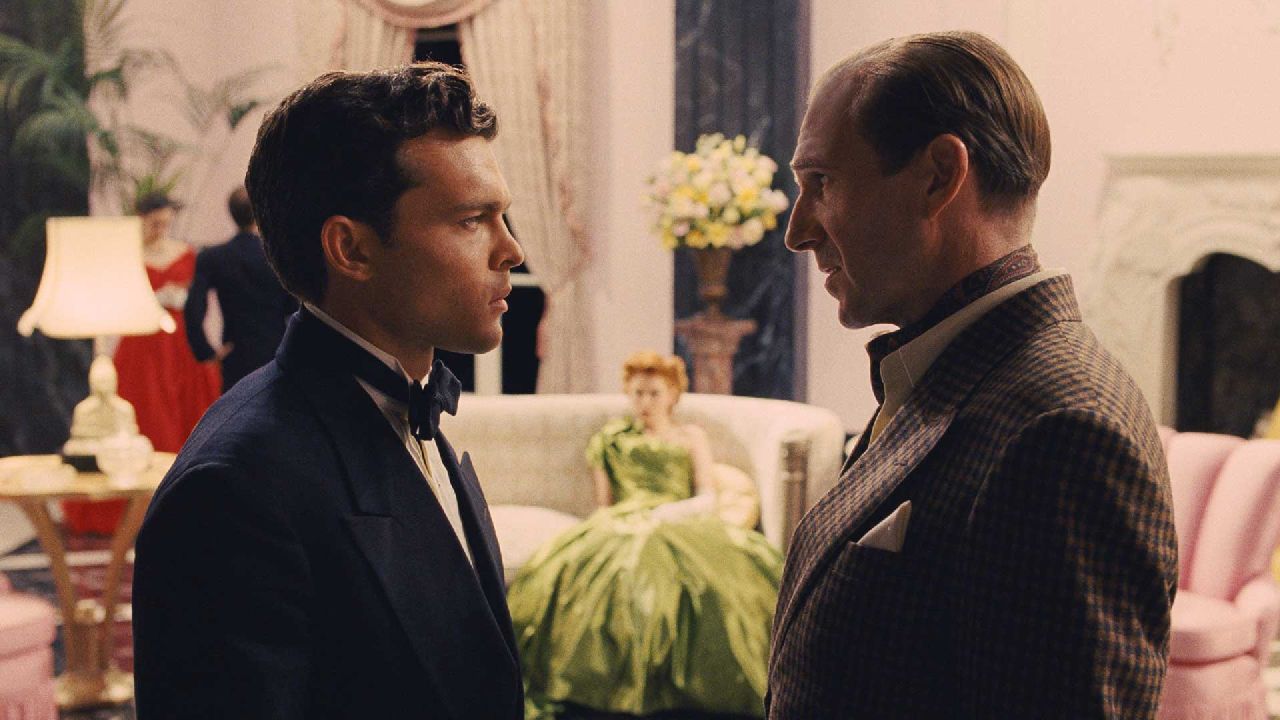REVIEW: 'Hail, Caesar!' is a sharp, funny reminder that Hollywood hasn't changed much
Reboots, sequels, movies made purely for profit; if there’s one trend that disappoints film fans more than most (that is, when we’re not talking about #OscarsSoWhite), it’s the idea that Hollywood is just a factory for self-perpetuating film franchises. With each passing year, Disney, Universal, Fox, Sony and the rest seem increasingly bent on packaging every major release for a pre-established fan base and a built-in merchandising concept. And when you crunch the real data, it can look kind of bleak - if you like original stories, that is.
But is it really true that everything in the film industry is going to Hell in a handbasket, as many a think piece will persuade you? Is rampant commercialization or crass factory-production of movies really that new of a concept in Hollywood? Or are the Marvel Cinematic Universe, the Transformers series and their peers merely a more heavily-branded version of an old business model?
Joel and Ethan Coen seem to think so. The brothers’ latest film, Hail, Caesar!, drops us onto a studio backlot in the fifties, when the wheels of production were just as busy as they are today, and soundstages methodically cranked out happy-go-lucky dancing pictures, broad cowboy romps, and bombastic Biblical epics. Minus the overworked gangs of CGI artists, it’s a Hollywood that doesn’t seem very different from the one we groan about today.
All the talent is happy with their steady paychecks and are begrudgingly grateful for the studios’ oversight in their private lives. The producers, meanwhile, finance huge homes and gaudy lifestyles from the movie proceeds, even if it means getting up at four in the morning to quash a scandal that wouldn’t make a Kardashian blink today.

It’s a kind of paradoxical creative machine that can look like a complete mess to an outsider. One character, a headhunter for Lockheed, offers the film’s hero Eddie Mannix (Josh Brolin) a chance to escape what the headhunter sees as “the circus”. He tries to tempt Mannix with a cushy corporate job, away from the loons who make cheap entertainment for America to consume.
Mannix’s job is clearly taking a toll on him (seen in his frequent visits to confession), so we can appreciate at first why he might take the gig. As an executive for Capitol Pictures, he must keep many gasoline-soaked balls in the air without setting them alight. A musical star (Scarlett Johansson) who’s become a single mother? Best to try marrying her off (for a third time) quietly. A cowboy who needs a new image? Carefully leak romantic details to the press, but watch out for the twin gossip columnists (both Tilda Swinton, naturally) who must be fed the right information.
But the chief concern is obviously Baird Whitlock (George Clooney), Capitol’s biggest star, who’s just gone missing from the set of the titular sword and sandal flick. Mannix must track him down and decipher the meaning of the cryptic messages he’s receiving from the apparent kidnappers, who call themselves “The Future”.
Is this mysterious group some kind of Southern California cult? Or just a “study group”, as they claim? If I know the Coens’ work, a double meaning is more likely: these are the people who tried to wrest creative control away from the studio system, only to be put to work laying the foundation for the 21st century film factories that we affectionately call “shared universes”.
You might think that a character like Mannix, or any of the creative types caught up in the proceedings of Hail, Caesar! would be overly cynical types; that they’d lost the sense of magic that got them into the business in the first place. But this is where the movie comes alive. As its different storylines coalesce, the Coens occasionally disarm their critique of the industry to prove that cinema magic can still be found even in the most machine-like system.

For all the stability of the job offer from Lockheed, Mannix feels a unique warmth keeping his crazy world working. The re-branding of Alden Ehrenreich’s cowboy actor Hobie Doyle doesn’t harm the kid – he attacks his new costume drama movie with the same enthusiasm, and the crowd loves it. And even after we see how much of an airhead Clooney’s Whitlock character is, the movie encourages us to share the brief awe of the set technicians as they watch him deliver a rousing speech in the closing scene of the movie he’s working on. Of course, being a movie by the Coens, they promptly put a pin in this for comedic effect, but it doesn’t diminish what the scenes say about the fleeting beauty of moviemaking.
Hail, Caesar! simultaneously romanticizes the picture business and parodies it, in a similar fashion to what Michel Hazanavicius did with his silent film The Artist in 2011. By poking fun, the Coens expose truths about the industry they themselves inhabit, with all its frustrating contradictions and moments of brilliance.
Perhaps one of the most comforting aspects of the film is how it reinforces for movie buffs that we are not witnessing the filmmaking apocalypse in the sometimes overwhelming burst of remakes and sequels. Instead, I suspect Hollywood is a little more cyclical than that: in the same way that mass-produced musicals and Westerns in the 50s gave way to the dark, edgy films of the 70s, we may be on the cusp of another revolution. And we won’t even need shambolic, idealistic kidnappers to make it happen.
Hail, Caesar! gets three and a half stars out of four.

What did you think of the Coen brothers’ newest film? Did you gobble up the references to old Hollywood? Do you think there’s a deeper message in the film underneath the period comedy? Join the discussion in the comments section, and if you liked this review, share it with your friends and followers!

